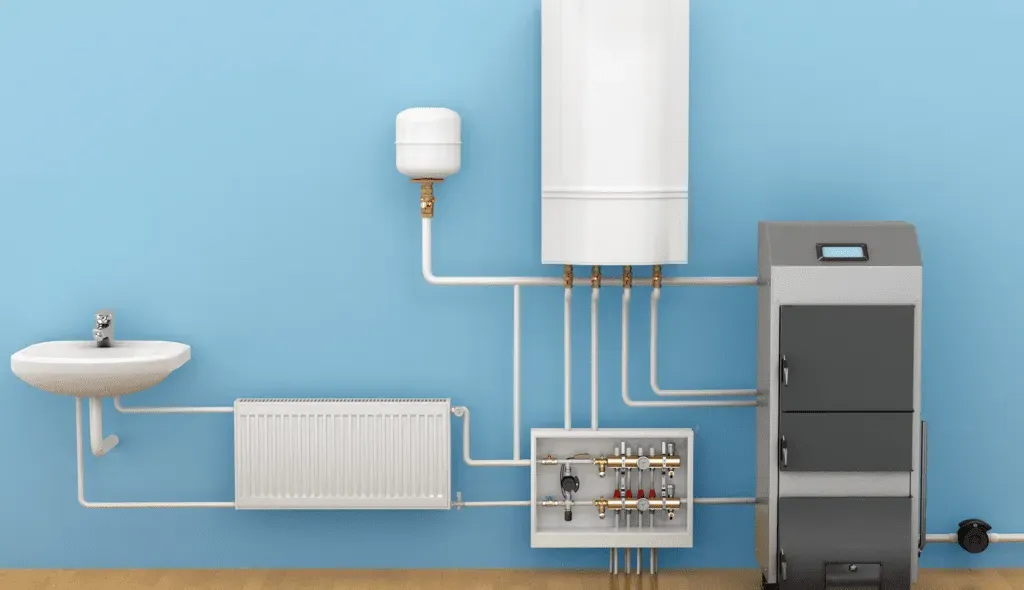Boiler Choice: Why Check the Central Heating Before Investing in a Property?

A guide to central heating, types of boilers and everything in between
For most individuals, buying or investing in a property is a significant decision. Such an undertaking requires a significant commitment in terms of both capital and time, so it is important that one has all the salient information prior to signing on the dotted line.
Of all the things people tend to check during the homebuying process, from employing the services of chartered surveyors to gauge the structural integrity of the building, to ensuring high-speed broadband availability and the prevalence of good schools in the area, one item that is often overlooked is the central heating.
It is a lesson sometimes, painfully learned – and this article is intended to make sure that when it comes to investing in property, one can learn to check the central heating before moving in, to avoid future headaches.
Should you get the boiler checked before buying a house?
This question seems like it would have an obvious answer, and it does. Yes.
Get the boiler checked before you commit to investing in or buying a property. Typically boilers are supposed to be serviced once a year, and sellers will most likely be able to provide you with a certificate if the boiler is, in fact, regularly serviced. But homeowners (or whomever the seller might be) are under no legal obligation to either provide you with a certificate or to get the boiler serviced at all.
When potentially committing to a huge financial investment remember this, if nothing else: Caveat Emptor – BUYER BEWARE!!
There is only one person who is going to have to pay if things go wrong, and that’s you! So, why not add a minimal additional expense to have the boiler serviced rather than find out the whole thing is collapsing and in need of replacement six or 12 months down the line?
Do surveyors check central heating?
No, surveyors are neither obligated to check the central heating system nor do many (if any) offer this as part of their services. As mentioned above, the surveyor’s major responsibility is to assess the structural integrity and the safety of the building or dwelling in question.
They will go as far as confirming that the property in question is or isn’t fitted with central heating, but when it comes to the functionality and condition of the boiler and pipes – you are on your own.
Does central heating add value to a house?
Yes, and yes. Central heating systems are able to add as much as 4% to the sale value of a property.
New, modern boilers and heating systems also create value through the money they save over the years, which in turn has a positive impact on the entire investment in the property as a whole.
Does a house have to have central heating to get a mortgage?
Typically, yes. Mortgage lenders have certain requirements of a property that must be met before they will be willing to issue a mortgage on that property, including that the property has a bathroom and a kitchen, that the structure is of sound integrity, and that the property has central heating to name but a few of the most common requirements for mortgage viability.
How much is central heating?
To have a new central heating system installed will typically cost in the region of £3,500-£8,000 depending on the type of heating, and the type and size of the property in which it is to be installed.
On an annual basis, contemporary gas fuelled central heating systems cost a typical home around £1,200 per year. This can be reduced by augmenting or replacing the gas system with LPG or solar panels.
If your home is heated entirely by electrical radiators or other electrical heaters, you can expect over three times that amount with the current cost of electricity.
Gas and electric certificates when buying a house?
Our recommendation is that the cost of getting both gas and electric certification when buying a house pales in comparison to the pain and cost one might endure by not getting them.
If you are committing all that money to buy the house, the comparatively minimal additional expenditure for the assurance that these key systems are in good working order is a real no-brainer.
How do I know what central heating system I have?
Unless you are using LPG, full solar, or an older, oil-fuelled heating system, then you are almost certainly using one of the following types of boilers:
1. Conventional Boiler
These are the older systems with a cold water tank in the loft and the heating cylinder typically located in an airing cupboard and are usually found in older, larger properties.
2. Combi Boiler
Most homes these days have combi boilers. They allow for longer, continuous hot water and more efficient heating than conventional boilers.
3. System Boiler
A system boiler is a bit like a mash-up of a conventional boiler and a combi boiler. It runs off the mains water supply but also employs a separate tank to cope with larger hot water and heating demand. System boilers are typically integrated into larger properties with at least five bedrooms and two bathrooms.
Final thoughts
As has hopefully been spelled out in no uncertain terms above, always spend as much time and effort as possible to fully inform yourself before making a massive financial commitment like investing in a property.
If you would like any further information relating to this or other issues around central heating, please feel free to get in touch with Boiler Choice.
Share to Buy is a one stop shop for affordable homes. On our website, you can search for properties, compare mortgages and find out all you need to know about alternative home buying schemes such as Shared Ownership via our article index.

